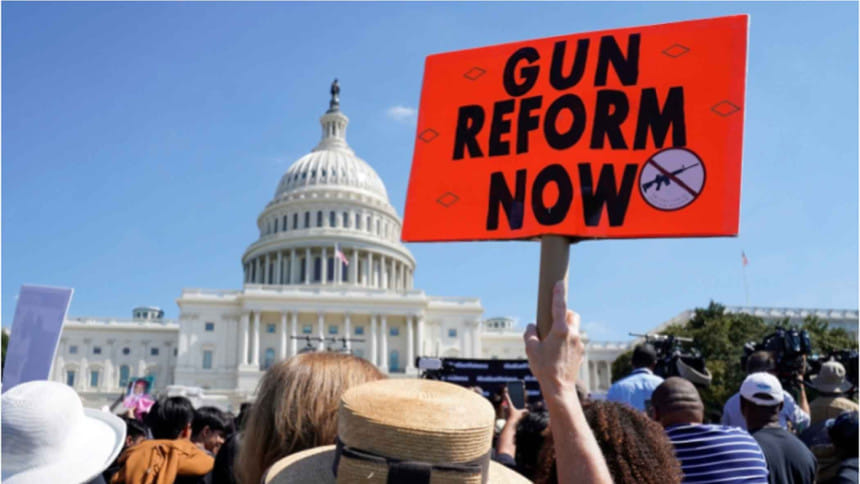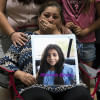Gun violence in the US: Bullets, politicians and corporate lobbyists

Another day, another mass shooting in the US. It is hard not to feel disillusioned as people claim that, perhaps this time, politicians will finally abandon their campaign funder, the gun lobby, and pass some basic legislation. After all, 90 percent of the population wants background checks and many want a ban on assault weapons—and yet, the status quo remains. Yes, the deaths of 19 elementary school children and two teachers are shocking, but so is every mass shooting in schools—and elsewhere. The shooting in Uvalde, after all, was the 27th school shooting in the US just this year that ended in injury or death. Mass shootings occur daily. There were 693 mass shootings in 2021 alone.
Murder of 19 children is an unquestionable tragedy. Each of those children was loved by people whose lives will forever be torn apart by the loss. But what of the children who weren't killed that day? Will they sleep at night? Will they feel safe in their classrooms? How many of them will face years, perhaps a lifetime, of trauma due to what they lived through?
There have been 311,000 children who have survived school shootings since the one in Columbine in 1999. That is 311,000 children who have survived the trauma of being in school when a shooting occurred, when their classmates and friends have been injured or killed.
Even the children who have never had a shooting at their own school are not free from the damage. They are subjected to active shooting drills. They see images on social media and on TV. They hear others discussing it. They go to school knowing that, any day, it could happen to them.
None of this is normal. Other countries have very little gun violence and have never experienced mass shootings in schools. With four percent of the world's population, the US has 40 percent of the world's guns. There are more guns than people in the US.
And what do some politicians (read: Republicans) suggest as solutions? Fewer doors in schools. And more guns. Lots, lots more guns. Because we all know that more guns lead to fewer shootings.
Let's not forget that Republicans are not incapable of passing laws to respond to perceived threats. They have passed all kinds of laws to respond to the imaginary threats posed by illegal voters, Critical Race Theory, transgender athletes, and those seeking abortions.
So, foetuses deserve protection. But children can be shot without the authorities doing anything to reduce the likelihood of it happening in future?
The anger generated over this most recent mass shooting is gratifying. But how many times will we repeat this scenario: Intensive coverage, including some that refuses to look at causes or deliberately misleads on solutions? Politicians beholden to the gun lobby casting blame on everything but guns. Others angrily pointing their finger at the need for gun control. Then the media cycle shifts and the anger fades away. Nothing else changes. And every single day, people die from bullet wounds.
School shootings are an extreme example of grossly negligent policies due to nefarious corporate influence. They are uniquely horrific in the immediate trauma they cause. But they are hardly unique in terms of corporations paying off politicians to avoid acting in the public interest. The suffering—whether from sugary drinks, tobacco, air pollution, car crashes or the climate crisis—is just as real. And the solution is the same: People need to stand up and demand that policymakers act in their best interest, not that of the corporations.
Debra Efroymson is the executive director of the Institute of Wellbeing, Bangladesh, and author of "Beyond Apologies: Defining and Achieving an Economics of Wellbeing."

 For all latest news, follow The Daily Star's Google News channel.
For all latest news, follow The Daily Star's Google News channel. 







Comments